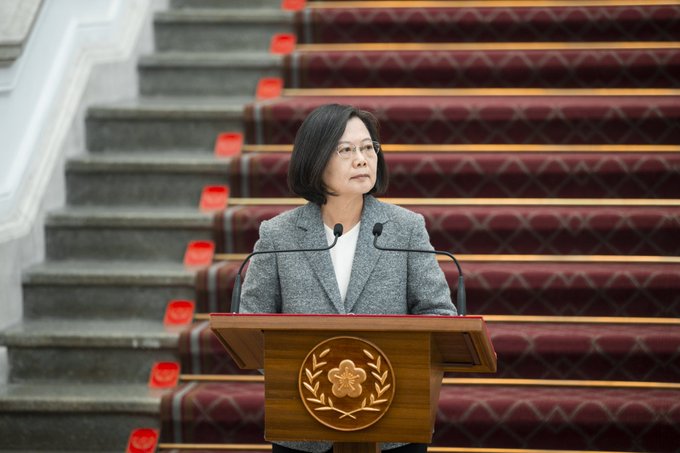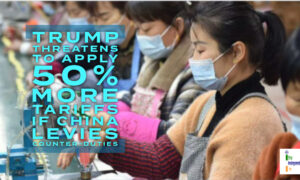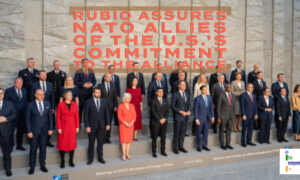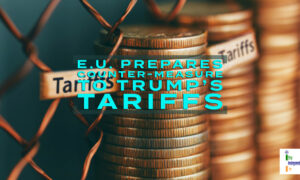
Tsai Ing-wen says Mainland China must accept the reality that Taiwan is not a part of China
The newly re-elected President of Taiwan – Tsai Ing-wen has said that Mainland China must accept the reality that Taiwan is not a part of China and is a separate and independent country.
In an exclusive interview to British News Channel – British Broadcasting Corporation (BBC), Tsai said that Taiwan deserves the same respect from China that other countries of the world command. The interview gains significance as it comes after Tsai recently won the Presidential polls with record 8.17 million votes to continue as the President of Taiwan for the 2nd successive term.
Speaking to the BBC Reporter, Tsai said, “We don’t have a need to declare ourselves an independent state. We are an independent country already and we call ourselves the Republic of China, Taiwan.”
Taiwan, officially the Republic of China (ROC), is a state in East Asia, which has been ruled separately from China since the end of a civil war in 1949. But China considers it to be a part of its territory. China has increased the diplomatic and military pressure on Taipei since Tsai Ing-wen became the President of Taiwan in 2016. Tsai’s Democratic Progressive Party refuses to acknowledge that Taiwan is a part of ‘One China’.
China wants Taiwan to be returned to its control, by force, if necessary. However, Tsai has warned China of any military action near her territory.
Speaking on China’s intention, Tsai remarked, “Invading Taiwan is something that is going to be very costly for China. We’re a successful democracy, we have a pretty decent economy, we deserve respect from China.”
She has also asked China to review its policies towards the island. She also said that her victory in the elections is proof of the fact that people of Taiwan don’t believe in the principle of “ONE CHINA”. At the same time, she hasn’t also ruled out the possibility of negotiations with Mainland China.
Most importantly, Tsai has signed the Anti Infiltration Act into law today regulating the influence of entities deemed foreign hostile forces on the political processes of the Republic of China (Taiwan), including elections and referendums.
Signing the Act, she tweeted, “Today I signed the Anti-Infiltration Act into law, a crucial step in our work to defend #Taiwan’s democracy. I want to reiterate that we are not opposed to interaction with #China, we are opposed to interference in our democratic processes.”
Today I signed the Anti-Infiltration Act into law, a crucial step in our work to defend #Taiwan’s democracy. I want to reiterate that we are not opposed to interaction with #China, we are opposed to interference in our democratic processes. pic.twitter.com/FC8CQr7SSp
— 蔡英文 Tsai Ing-wen (@iingwen) January 15, 2020
Separately, the Spokesman for the Taiwan Affairs Council in Beijing – Ma Xiaoguang has said that China will not tolerate any activity which aims to separate Taiwan from the Mainland. He added that China will continue to counter and attack all such activities to maintain peace and stability in the region.
Ma also said that Tsai approach will only block cross-strait exchanges and cooperation between Taiwan and China. In addition, the Foreign Minister of China – Wang Yi has warned the supporters of Taiwan independence that “splitting the country is doomed to leave a name that will stink for eternity.”







